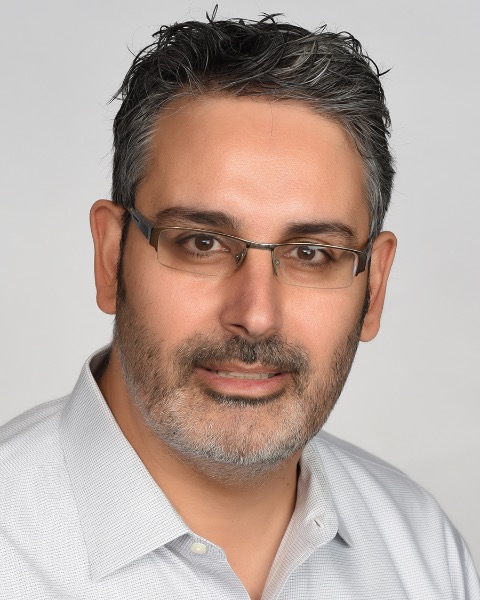
Michail S. Lionakis, MD, ScD (he/him/his)
Chief, Fungal Pathogenesis Section
NIAID/NIH
Dr. Lionakis is a physician-scientist and Head of the Fungal Pathogenesis Section in NIAID’s Laboratory of Clinical Immunology and Microbiology where he is Deputy Chief. He obtained his MD and ScD from the University of Crete, Greece. He did postdoctoral research training at MD Anderson Cancer Center, followed by Internal Medicine Residency at Baylor College of Medicine, and Infectious Disease Fellowship at NIAID/NIH. He established his own lab in 2012 at NIAID and received early tenure in 2017.
Dr. Lionakis’s integrated bench-to-bedside research program is based on clinically relevant mouse models of fungal disease and patient cohorts with inherited or acquired susceptibility to fungal infections and focuses on understanding 1) the genetic and immune defects that underlie susceptibility to human fungal infections and on 2) cellular and molecular factors that regulate the immune response against fungi. His work has defined precise genetic, biochemical, immunologic, and cellular disease mechanisms that have led to targeted immunotherapies. He has identified interferonopathy as a critical driver of mucosal candidiasis in APECED patients and has identified local neutropenia due to impaired microglial-neutrophil crosstalk as a critical driver of brain-targeted candidiasis in patients with CARD9 deficiency. He has delineated novel inherited (CARD9 deficiency, STAT3 haploinsufficiency, ISG15 deficiency) and acquired (BTK inhibitors) immunodeficiency states that increase mold infection susceptibility.
Dr. Lionakis has published >250 peer-reviewed papers in journals such as Cell, Science, NEJM, Science Translational Medicine, Science Immunology, Nature Immunology, JCI, JEM, Cell Host Microbe, Cancer Cell, and others. He is a Member of the Association of American Physicians, a Fellow of the AAAS, a Member of the American Society for Clinical Investigation, a Fellow of the American Academy of Microbiology, and a Fellow of the IDSA. He has received several awards including the NIH Director’s award, the NIAID Outstanding Mentor Award, the NIAID Merit Award, the IDSA Oswald Avery Award for Early Achievement, the Junior Investigator Award from the Immunocompromised Host Society, and the American College of Physicians Walter J. McDonald Award for Early Career Physicians.
Disclosure(s): No financial relationships to disclose
Presentation(s):
-
3 - Climate Change, Parasitic and Fungal Diseases
Wednesday, October 16, 2024
1:30 PM - 3:15 PM US PT -
9 - Impact of Climate Change in the Immune Defense against Candida
Wednesday, October 16, 2024
2:05 PM - 2:40 PM US PT
